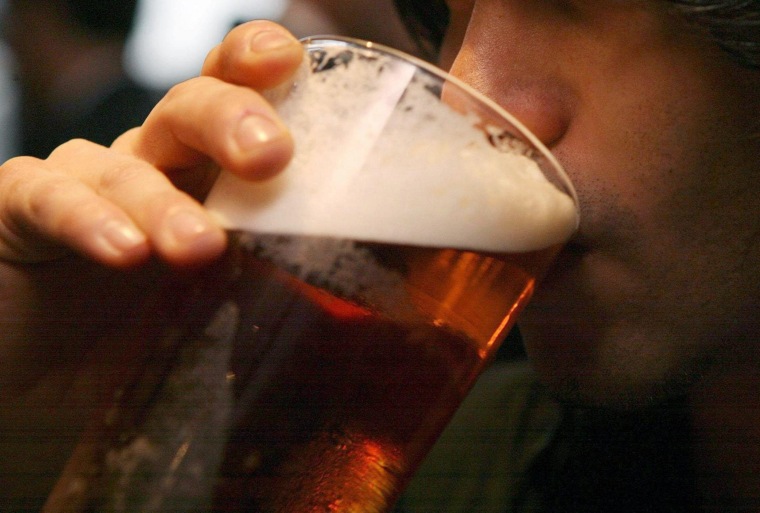In a new PR strategy, environmental groups are adding a little hops to their step on clean water conservation efforts.
The Natural Resources Defense Council (NRDC) is teaming up with 21 craft breweries to make water sexy—and to tell people that keeping our water supply safe is everyone's responsibility. These local breweries are pledging to maintain clean brewing strategies and promote community education about the need to protect the Clean Water Act (CWA). Why? Because 90% of their product is water.
“Water isn’t necessarily a sexy thing to talk about, so bringing beer into the picture helps people listen and communicates the message of why water is so important," Ian Hughes, a brewer with the Chicago-based beer company Goose Island, told msnbc.com.
The CWA was originally passed to protect rivers, streams, lakes, and wetlands that had fallen prey to unsafe environmental practices. Since the 1970s, it has suffered some significant setbacks. While the breweries are local, the far reaching impact of water is not. Roughly 117 million Americans rely on drinking water from headwater streams and wetlands that may not currently be protected under the CWA, leaving these areas vulnerable to the negative effects of industrial pollution and in some portions of the country, "fracking" for natural gas.
“Whether brewers are creating ales, pilsners, porters, wits, or stouts, one ingredient must go into every batch: clean water,” NRDC Senior Policy Analyst Karen Hobbs told msnbc.com. “Craft brewers need clean water to make great beer." The non profit environmental group is pushing its message to younger audiences in utilizing breweries’ social media following and local community outreach to raise awareness about the need for clean water.
Signing on to the environmental pledge will likely add to the breweries' production costs, but brewers like Ian Hughes agree that “the most important thing is the clean water. Taste comes first, quality comes first, charge comes second.” Even if prices do go up, brewers say it's a price they are willing to pay. But when asked, it was unclear if they thought beer drinkers will feel the same.
One catalyst for NRDC action comes from continued confusion and dilution of the Clean Water Act. When it first passed in 1972 the law gave teeth to an otherwise powerless Environmental Protection Agency, but since then, it has been diluted, both in courts, interpretation, and enforcement. Hobbs points out that since its passage,"there are no more rivers catching on fire" but the work to protect America's water sources, and your beer, is far from done.
Specifically in the early 2000's, the Supreme Court heard and ruled on multiple cases crippling the EPA's ability to enforce polluter violations, as well as excluding many smaller tributaries, wetlands, and rivers from protection despite the fact that they flow into larger, CWA-protected, bodies of water. "We've been waiting for Obama to issue clean water guidance to show what’s covered," Hobbs points out. The Obama administration has issued a Commitment to Clean Water, but there has been little to no tangible legislative action on the issue.
Water is a dry subject. But Brewery Vivant's Jason Spalding has a point: "If you don't look at it in the long term, it will hurt all of us."
